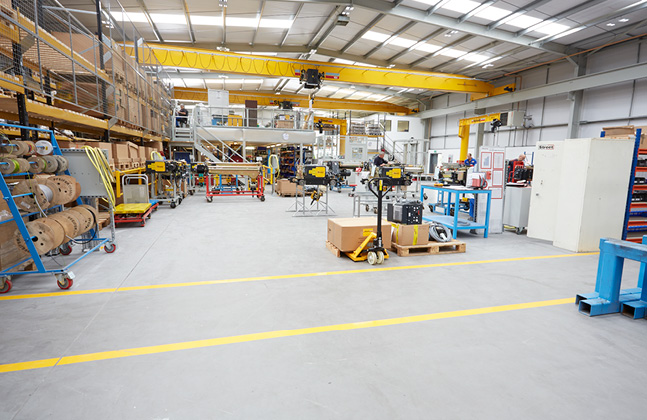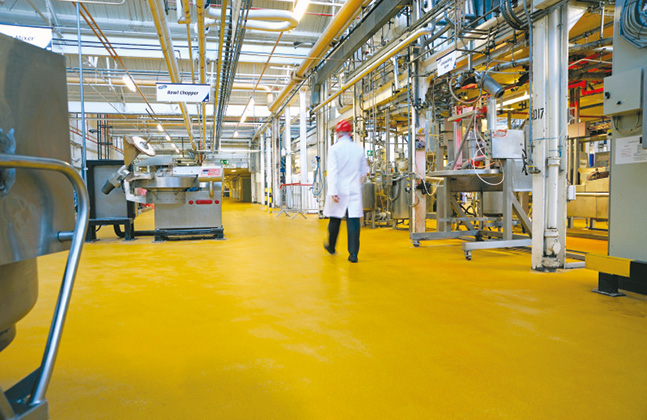Specifying the floor for an industrial facility can be a complex task, with a long list of difficult decisions that could be the difference between surface success or floor failure.
To give you an overview of some of the key industrial flooring issues, we’ve distilled the advice that Flowcrete India’s Managing Director, Vivekanandan Margasahayam, gave earlier this year to the Construction Chemicals Manufacturers Association (CCMA), when the industry body met in Pune to foster progress and growth.
Specify for your Environment
The floor could be subjected to one or all of the following kinds of abuse:
- Impacts
- Abrasion
- Chemical Attack
- Moisture Ingress
- Thermal Shock
Any of these could render a concrete floor ineffective, either by cracking it or making the surface porous, prone to dusting and vulnerable to bacterial contamination.
And that’s not all, as certain industries may face unique flooring problems. To name just a couple of these, in the aviation sector floors have to be able to withstand the corrosive effects of Skydrol aviation hydraulic fluid and in large distribution centres the floor needs to be as flat as possible to avoid lift trucks vibrating when they move around the site.
Therefore the finish needs to be able to withstand the challenges that the specific site’s future use will inflict on it. Ask yourself whether it will need to be resistant to spillages of chemicals, grease and oils? Are there any sources of thermal shock or will it undergo thermal cycling? How much traffic and of what kind will be moving across the floor?
It’s also important to conduct a thorough life cycle analysis to ascertain the costs of the floor over its lifespan and not just of its initial installation. This means taking into account the maintenance budget and what you’ll need to spend on keeping the floor clean, how much repairs will cost, how long it can be expected to last for and what the cost of downtime would be if it needed to be refurbished early.
Four Types of Floor
Once you’ve got a good idea of the above factors then it’s time to look at the flooring options available to see which one best fits the identified criteria. There are four main types of industrial flooring, which are:
- Concrete Floor With a Floor Hardener
A traditional technique for flooring in industrial facilities, however it doesn’t change the basic characteristics of concrete floors. - Polished Concrete
An increasingly popular solution but one that can suffer from uneven aggregate distribution, visible cracks and colour variances between slabs if the concrete has not been laid with the purpose of being polished. - Industrial Tiles
Industrial tiles have a high breaking strength and are able to withstand heavy loads well. The joints in a tiled floor can be vulnerable though and difficult to clean. - Resin Flooring
Available in a variety of different formulations to meet different needs. It can have a higher initial installation cost than alternative flooring materials but will usually last for longer and require less maintenance.
When Vivekanandan Margasahayam presented this information to the CCMA it was enthusiastically received by the attending industry professionals as it aligned perfectly with the event’s theme ‘the Effective use of Construction Chemicals for Enduring Structures’.
The construction chemicals industry in India is estimated to stand at Rs.3,200 crores (USD489 million), with the potential to grow to Rs.7,000 crores (USD1,070 million) by 2018. Flowcrete India sponsored the CCMA’s event to be at the forefront of the industry as it grows for the future.
If you would like to find out more about specifying floors for industrial facilities, get in touch with Flowcrete India’s resin flooring experts on +91 44 42029831 or email india@flowcrete.com.






